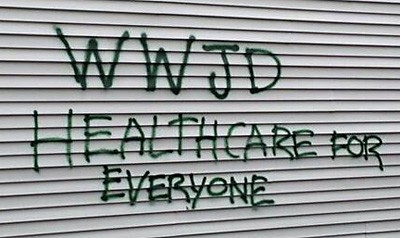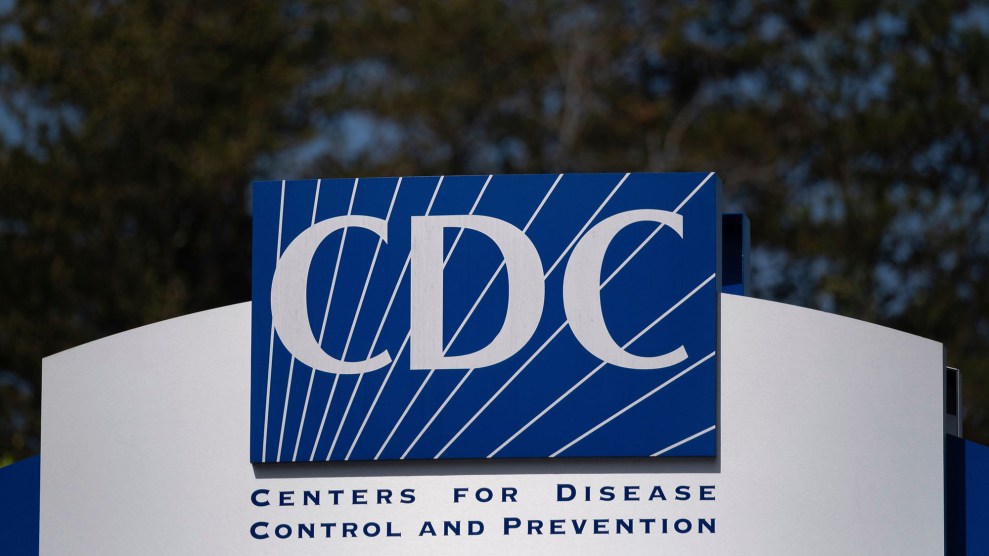Megan McArdle writes today that there’s little consistent evidence showing that giving people health insurance actually does much to save lives. This is based largely on a couple of recent papers (plus a few other older ones), and she’s basically right. She’s also right when she says that health insurance does save people lots of money. I don’t want to address this literature in detail right now, but if you want to know more about it you should read Ezra Klein’s post about this and then McArdle’s response.
However, I do have some quick comments I want to add to this conversation. Some of it echoes what the other posts say, while some of it is new. Here it is:
- The single biggest piece of evidence about the effect of health insurance is a study of Medicaid in Oregon a few years ago. It showed that people who randomly got Medicaid coverage didn’t show much improvement
 in their health, nor did they live any longer than those without Medicaid.
in their health, nor did they live any longer than those without Medicaid. - However, as important as it was, the Oregon study was small; the time frame was short; the population was drawn entirely from the poor; and the results were ambiguous. Nobody should ignore this study, which was unique in being a true controlled trial, but no one should think it’s the final word either.
- The results of the Oregon study would probably not scale up. One way or another, Oregon’s health care system can absorb a few thousand uninsured people. Some of the cost gets absorbed by hospitals that don’t get paid. Some gets absorbed by local programs. Some gets absorbed by free clinics. It’s a strain, but the system can handle it without breaking completely.
- But this isn’t an argument against health insurance generally. If half the state were uninsured, the system would almost certainly break down. There would simply be too many people who either couldn’t or wouldn’t pay for their care, and not enough people left over to absorb that cost.
- Also, as I like to point out ad nauseam, there’s more to health care than mortality. A dental filling won’t extend your life, but it will sure make you feel better. Ditto for a hip replacement or an antidepressant.
- Health insurance is a financial lifeline, and in many cases prevents bankruptcy. But there’s more. It’s also a huge reliever of stress. Trying to cobble together care from a complicated, ad hoc network of clinics, ERs, doctors who don’t want to see you, and friends who can loan you a few bucks is soul destroying—especially for people whose lives probably kind of suck to begin with.
In the end, I think this is what health insurance is mostly about: financial security and common decency. Yes, the uninsured can usually patch together health care in an emergency, and sometimes even when it’s not. This is why access to health insurance probably has only a modest effect on health. (Though I don’t believe it’s zero. If we could do a bigger, better, longer-term study we’d almost certainly see a difference.) Still, is a constant, desperate search for health care really a decent thing to tolerate in the richest country in the world? Is relentless, gnawing worry about whether to buy food this week or take your child in for a checkup a decent thing for us to tolerate? Is an endless, threatening barrage of harassment from hospital bill collectors a decent thing for us to tolerate?
It kills me that some people think it’s just fine to tolerate this—among the poor, anyway. It’s true that there are lots of things that are inevitably going to afflict the lives of the poor. Compared to the better off, they’ll have worse food, worse housing, worse cars, and worse clothes. But should they have worse health care? That’s a moral question, not a scientific one. And my moral compass says that health care is one of the things all of us should have decent, regular access to. In fact, it makes me a little sick to my stomach every time I have to face up to the fact that a lot of moral compasses here in America apparently don’t agree.


















